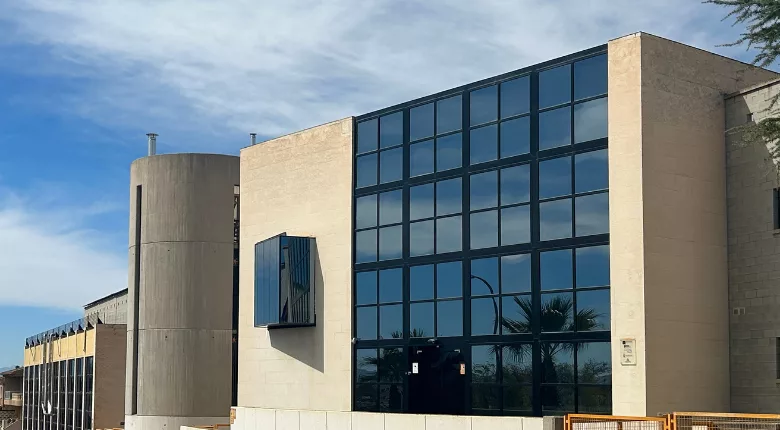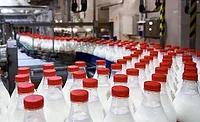HRS, CTNC Partnership Enables Industry to Test Thermal Processing Tech, Aseptic Packaging in Spain

Image provided by HRS Heat Exchangers
For companies that operate with the latest thermal processing technology, like HRS Heat Exchangers and its clients in the food and beverage industry, being able to trial up-to-date systems and analyze the latest materials and products can pay huge dividends, particularly when such work is undertaken by experienced independent researchers and engineers.
For the last 20 years, HRS Heat Exchangers has forged a close working partnership with Spain’s National Technological Center for the Food and Canning Industry—Centro Tecnológico National de la Conserva y Alimentación (CTNC)—a private, not-for-profit research association that works with a wide range of organizations and companies on private, national, and international food and beverage development projects. The alliance has been further cemented with the installation of a new pilot aseptic filling plant from HRS, giving customers and researchers the chance to test the performance of different heat exchanger types when developing new food and drink products.
CTNC’s facilities at Molina de Segura are just ten minutes away from HRS Heat Exchangers’ Spanish office and manufacturing facilities in Murcia– the heart of Europe’s fruit growing region. It provides the ideal conditions for HRS and its clients to benefit from the CTNC testing and technology services, which includes laboratories covering microbiology, instrumentation, packaging, physical, and chemical quality control, food safety, and water and environment testing.
Established in 1962 as part of the University of Murcia, CTNC now has its own facilities and operates as an independent public utility. Its particular focus on food, environment, and the circular economy aligns with the areas in which HRS works. HRS’ longstanding presence in the field of thermal technology, as well as its location in the heart of Murcia, led to its partnership with the center. As a result, a variety of HRS equipment including corrugated tube and scraped surface heat exchangers, as well as an HRS Asepticblock treatment and packing system, is in use within the CTNC technological area for researchers and HRS customers alike to use.
Through the partnership, clients can access CTNC facilities to test how their products will perform with different heat exchangers (as well as microwave heating), so that they can work with HRS engineering staff to choose the best heat exchanger option for their requirements.
Murcia, Spain is home to a high volume of fruit producers, as well as primary and secondary processors, so there is significant demand from companies wanting to trial new products or processes on the new aseptic pilot plant from HRS. The pilot plant is the only one of its kind in Spain, and it currently has 15 companies on the waiting list that are looking to develop new food and drink products or move from conventional heat treatment to aseptic packing.
Traditionally, hot filling of food and drink products sterilizes the container as the product, still hot from cooking or sterilizing, is filled. However, the temperatures required often have unwanted effects on the quality of the product, and the heat imposes restrictions on the type of container that can be used; for example, hot filling of lightweight plastic drinks bottles can lead to distortion of the plastic. Because of these challenges, cold aseptic filling has become a common technique with beverage manufacturers for products including ultra-high temperature pasteurized (UHT) milk, fruit juices, and sports and energy drinks. Its flexibility means that it is suitable for a wide range of products from fresh fruit dices and purees to marinades and dairy products.
Looking for quick answers on food safety topics?
Try Ask FSM, our new smart AI search tool.
Ask FSM →
The HRS Asepticblock pilot plant installed at CTNC is a special trial version of the standard HRS Asepticblock Series of skid-mounted self-contained pasteurizer and sterilizer systems with integrated aseptic filler. The unit at CTNC features a balance tank, a deaerator (to prevent oxidization), and a product pump. The product goes through a pre-heating stage, followed by a choice of heat treatments (heating or cooling) which are chosen via a control panel. The available options include heat exchangers (corrugated tubular, MI multitube, and DTA double tube along with the HRS R Series scraped surface) and a microwave heating unit. Because of the benefits of HRS clients being able to use the technology, HRS Heat Exchangers supplied the unit at cost to CTNC.
Additionally, because CTNC is a research center, there is the potential to handle new and upcoming products, placing HRS at the forefront of new trends in the food processing sectors. CTNC also demonstrates HRS technologies and the efficiency of its equipment, increasing awareness of the brand and potentially introducing HRS to new markets and clients.
Partnering with the CTNC also gives HRS access to a variety of different types of products and materials that it might not otherwise have access to. This enables the company to test its heat exchangers and systems with a wider range of materials, each with different textures, viscosities, and thermal properties. HRS can also analyze new materials from customers and clients that they may not have worked with before (such as sludges generated by environmental applications), helping to further their capabilities.
CTNC is recognized by major international organizations such as the U.S. Food and Drug Administration, BRC Global Standard for Food Safety (BRCGS), International Featured Standards (IFS), as well as the Health Department of Murcia. CTNC analyses are also covered by European accreditation.







